Will industrial strategies chart a new course for the future of Quebec industries?

The Quebec economy—and more broadly the world economy—faces multiple challenges: the climate crisis, supply chain problems, labour shortages, inflation, etc. Quebec has an abundant supply of resources, know-how, and expertise; however, the next points on its agenda should include structuring, developing, and planning industrial activities.
Industrial policy: the missing link in Quebec’s industrial and economic development
On October 27, 2022, at Canada’s Net-Zero Industrial Strategy Summit, organized by the Smart Prosperity Institute, Charles F. Sabel, an American Professor of Law and Social Sciences at Columbia Law School, defined industrial policy as follows:
“This Industrial policy refers to the measures that redirect economic activity to solve urgent social problems—such as de-carbonizing the economy, accelerating economic growth or achieving shared prosperity—that the market, left to itself, cannot resolve.”
Each element of this definition echoes the capabilities of Quebec’s Electric and Smart Transportation (EST) industry:
- The environmental element: in 2019, Quebec’s total GHG emissions were 84.3 million tCO2eq. Transportation is responsible for 43.3%1, 36.5 million tCO2eq; i.e., the weight of six Pyramids of Cheops!
- The economic element: in 2021, sales in the Electric and Smart Transportation (EST) industry totalled $3.3 billion,2 which is a 300% increase compared to 2016.
Besides its positive impact on Quebec’s environmental performance, a ground transportation transition to electric and smart systems would contribute to the province’s economy—specifically to Quebec’s balance of trade and to its work force, because of the sustainable careers originating in our sector. In 2019, oil imports accounted for 48% of Quebec’s deficit. By contrast, Hydro-Québec’s profits, including from electric vehicle charging, were redistributed to the Quebec government to develop state services, in what is clearly a virtuous cycle!
Ambition EST 2030 – collective enthusiasm
Since 2019, Propulsion Québec members have been expressing a clear need to structure and plan our industry’s activities over the years to come. This would stimulate growth in project development and in the Quebec organizations involved in sustainable mobility. With this in mind, Propulsion Québec created a roadmap of Quebec’s EST ecosystem, completed an analysis of global trends in mobility, and drew up lists of Quebec’s strengths and weaknesses, and of the ambitions of the governments of Canada, Quebec, Montréal, and the US. This took place in workshops where over a hundred industry players worked together to identify markets with strong potential in the field of electric and smart transportation. Last June 23, after two years of work, the group made this industrial policy public under the title “Ambition EST 2030.” The strategy is aimed at EST industry members and structured around eight major strategic themes.
Based on 225 concrete initiatives to be rolled out over the next eight years, this EST ecosystem roadmap, which is a true industrial policy for our sector, will provide an opportunity for Quebec to accelerate its efforts against climate change, and reduce its transportation-related greenhouse gas emissions. It will also improve the mobility of Quebecers, make Quebec businesses more competitive, create sustainable jobs, and boost a key sector of the economy.
The task of carrying out these initiatives will be shared among Propulsion Québec, Quebec’s EST organizations, and government bodies. In order to track the implementation of its industrial policy, Propulsion Québec has created an interactive dashboard for following up on the 225 initiatives and the mobilization of the ecosystem’s stakeholders. It allows each to advance its own initiatives while contributing to the joint effort, which is to make Quebec a world leader in electric and smart transportation, to contribute to the fight against global warming, and to create sustainable economic development for its land and people.
It will rely on its own resources and expertise, gain autonomy, and take one more step toward the green transition.
Ambition EST 2030 was carried out with support from the Government of Quebec – Ministère de L’Économie, de l’Innovation et de l’Énergie, the Ministère de l’Environnement et de la Lutte contre les changements climatiques, the Mouvement Desjardins, Hydro-Québec, IVEY Foundation, the Communauté Métropolitaine de Montréal, Deloitte andISEQ.
Continue reading on the subject

The challenges of designing a 40-tonne, 100% electric mining vehicle for open-pit mines
Partnerships and implications The partners involved in the development of a 100% electric Quebec mining vehicle were all eager to be involved with the project from the outset, for a variety of reasons. NRC’s Eddy Zuppel explained their contribution: “Before starting the project, it was important to model and simulate the vehicle’s route in order […]
Read more
Energy efficiency: Financial support to put your ideas into action
Leading a company involves balancing several priorities at the same time. Energy efficiency? It’s an important issue—one of many! What if we gave you what you need to make energy efficiency a driving force behind your company’s performance and profitability? The good news is, Hydro-Québec offers financial assistance and guidance to help you balance performance and energy efficiency.
Read more
My Consumption Profile: data that lets you strategically manage your electricity use
Companies have a critical role to play in the energy transition. Knowing that energy efficiency factors big into profitability, your organization will benefit from strategically managing its electricity use. The key? Your data!
Read more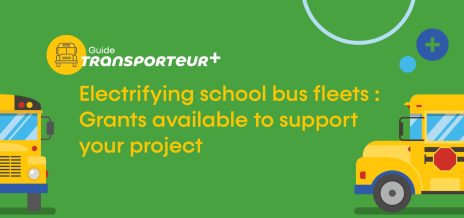
Electrifying school bus fleets : Grants available to support your project
In this series of articles, we demystify the key steps of converting your school bus fleet to electric power thanks to the Transporteur+ guide. This guide aims to provide easy and direct access to resources to clarify the steps, issues, conditions and facilitating measures for a successful transition to electrification.
Read more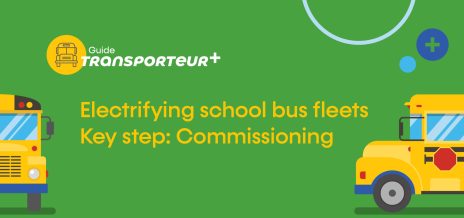
Electrifying school bus fleets | Key step : Comissioning
In this series of articles, we demystify the key steps of converting your school bus fleet to electric power thanks to the Transporteur+ guide. This guide aims to provide easy and direct access to resources to clarify the steps, issues, conditions and facilitating measures for a successful transition to electrification.
Read more
FINANCING | $50 million from Finalta Capital in non-dilutive financing dedicated to the Electric and Smart Transportation sector
Fast growing, innovative companies from the electric and smart transportation (EST) sector in Québec take advantage of the $50 million in funding dedicated to the EST ecosystem by Finalta Capital, one of Canada’s largest funds specialized in non-dilutive tax credit and government grant financing, announced in March 2023 as part of the Impulsion conference, the International EST Summit organized by Propulsion Québec.
Read more
Demand response: Save money by using hydro at the right times
If you could lower your company's hydro bill while contributing to the collective effort to support Quebec’s energy transition, would you? Yes, most likely! How? By curbing power demand for buildings and equipment during peak demand events.
Read more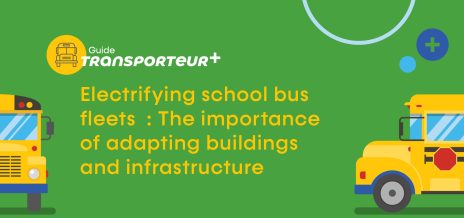
Electrifying school bus fleets : The importance of adapting buildings and infrastructure
In this series of articles, we demystify the key steps of converting your school bus fleet to electric power thanks to the Transporteur+ guide. This guide aims to provide easy and direct access to resources to clarify the steps, issues, conditions and facilitating measures for a successful transition to electrification.
Read more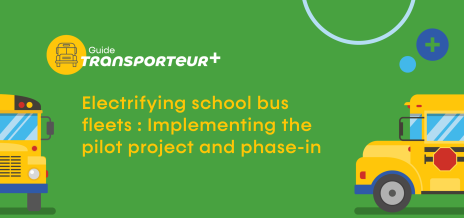
Electrifying school bus fleets : Implementing the pilot project and phase-in
In this series of articles, we demystify the key steps of converting your school bus fleet to electric power thanks to the Transporteur+ guide. This guide aims to provide easy and direct access to resources to clarify the steps, issues, conditions and facilitating measures for a successful transition to electrification
Read more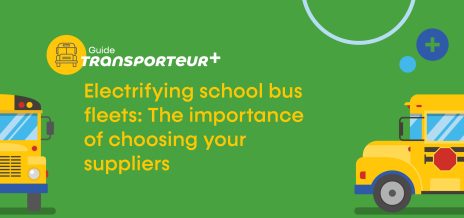
Electrifying school bus fleets: The importance of choosing your suppliers
In this series of articles, we demystify the key steps of converting your school bus fleet to electric power thanks to the Transporteur+ guide. This guide aims to provide easy and direct access to resources to clarify the steps, issues, conditions and facilitating measures for a successful transition to electrification.
Read more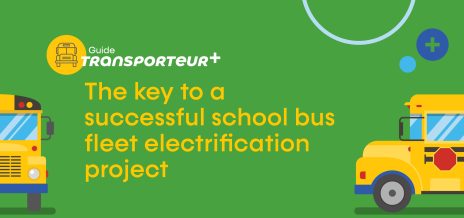
The key to a successful school bus fleet electrification project
In this series of articles, we demystify the key steps of converting your school bus fleet to electric power thanks to the Transporteur+ guide. This guide aims to provide easy and direct access to resources to clarify the steps, issues, conditions and facilitating measures for a successful transition to electrification.
Read more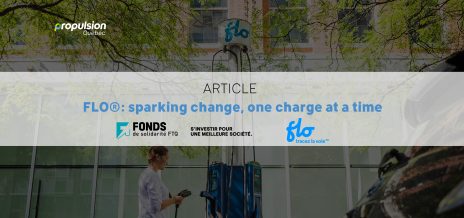
FLO®: sparking change, one charge at a time
FLO became a leader in electric vehicle (EV) charging in North America by integrating the process from start to finish: manufacturing charging stations, developing software and managing its network. To stay ahead of the curve in a fast-moving, innovation-driven market, the company turned to the Fonds de solidarité FTQ to support its growth.
Read more




